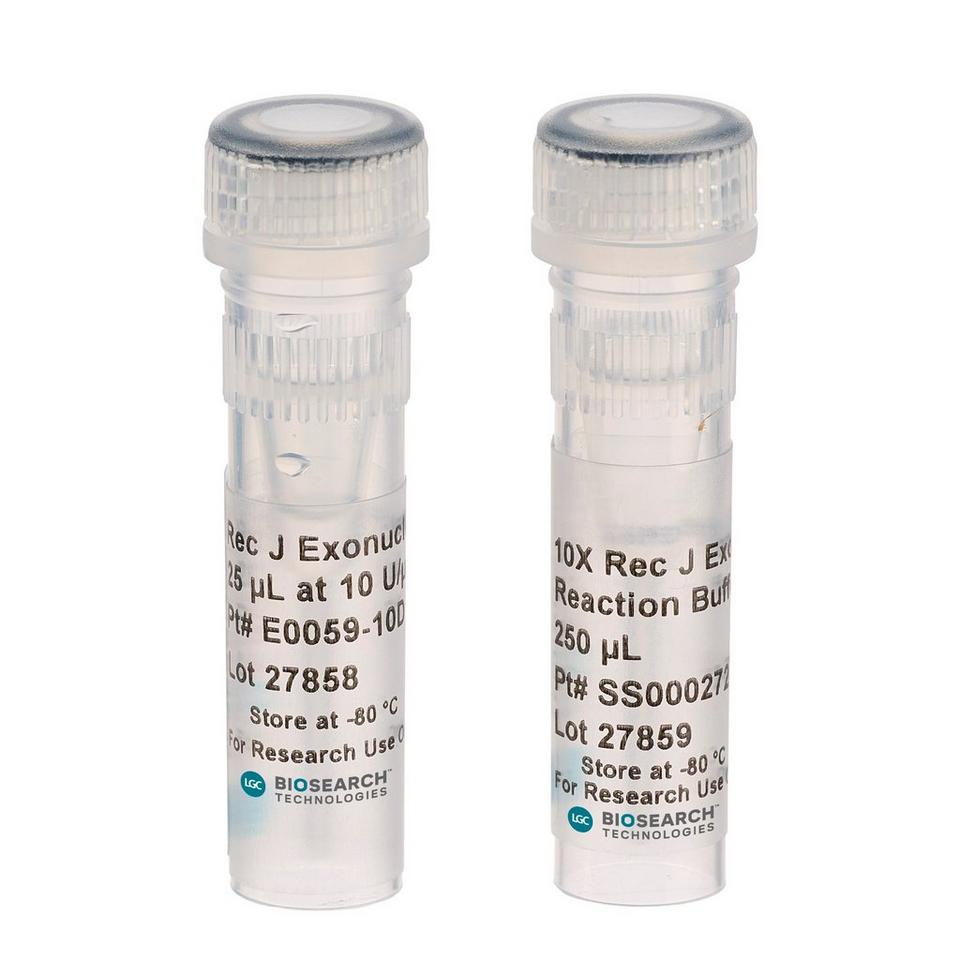Rec J Exonuclease, derived from E. coli, catalyzes removal of deoxyribonucleoside monophosphates from single-stranded DNA in a 5'- 3' direction. Its activity is dependent on Mg 2. Rec J Exonuclease can be heat-inactivated by incubation at 65°C for 20 minutes.

Unit Definition
One unit is the amount of enzyme that catalyzes release of 1 nmol of acid-soluble nucleotides from activated single-stranded calf thymus DNA in 30 minutes at 37°C.
Storage Buffer
50% glycerol containing 50 mM Tris-HCl (pH 7.5), 0.1 mM EDTA, 1 mM DTT, 0.1 M NaCl, and 0.1%Triton® X-100.
10X Reaction Buffer
330 mM Tris-acetate (pH 7.8), 660 mM potassium acetate, 100 mM magnesium, acetate, and 5.0 mM DTT.
Quality Control
Rec J Exonuclease is free of detectable RNase and contaminating DNA exo- and endonuclease activities.
If you cannot find the answer to your problem then please contact us or telephone +44 (0)1954 210 200